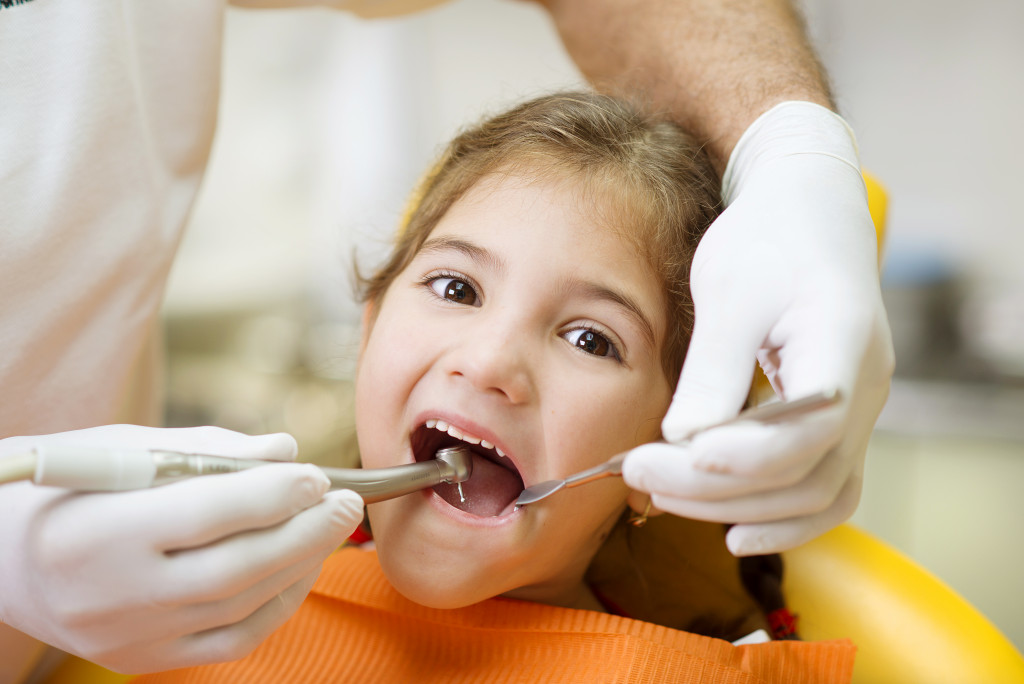- An underbite occurs when the lower front teeth extend in front of the upper front teeth.
- Underbite causes include genetic factors, thumb sucking or prolonged pacifier use, and skeletal or muscular abnormalities.
- Treatments for an underbite may include arch expanders to widen the upper jaw and bring it into proper alignment.
- The benefits of treating an underbite include an improved ability to chew food, speak clearly, and breathe properly.
As a parent, you always want to ensure your child has a good set of teeth and a healthy smile. But sometimes, your child may have a dental problem that needs attention. One such problem is an underbite, which occurs when the lower front teeth extend in front of the upper front teeth.
This condition can affect not only the appearance of your child’s smile but also their dental and overall health. So, is it possible to treat underbites in children? Read below to find out.
Understanding Underbite
An underbite is a common dental condition when the lower teeth extend beyond the upper teeth. It can affect both your appearance and your overall dental health. The good news is that underbites are usually treatable with advancements in modern orthodontics. Understanding underbite is the first step toward correcting it.
Left untreated, an underbite can lead to problems with eating, speaking, and even breathing. As such, it’s essential to address an underbite with the help of a qualified orthodontist. You can improve your dental health and achieve a more confident, beautiful smile by seeking professional treatment.
Treating Underbite

Fortunately, several treatments can effectively address an underbite in children. One such treatment is the use of an arch expander. This device is used to widen the upper jaw, which can help to create more room for the lower jaw and bring it into proper alignment.
Correcting an underbite in early childhood can help your child avoid more serious dental or functional problems later on. If your child struggles with an underbite, don’t hesitate to talk to your dentist or orthodontist about potential treatments, including using an arch expander.
Benefits of Treating Underbite
Treating an underbite can have several benefits for your child, both in terms of dental and overall health. Correcting the alignment of the teeth and jaws can improve their ability to chew food, speak clearly, and breathe properly.
It can also help prevent the development of other dental problems like overcrowding, decay, or gum disease and boost your child’s self-esteem and confidence by giving them a more attractive smile.
Tips for Preventing Underbite
As a parent or caregiver, it is essential to identify the signs of an underbite and take measures to prevent it from affecting your child’s dental health. Here are some crucial tips for avoiding underbites in children that you should follow.
Early Orthodontic Treatment
One of the leading causes of underbite is a discrepancy between the size of the upper and lower jaws. If left unaddressed, it can lead to an underbite. Early orthodontic treatment is recommended for children who show signs of an underbite.
It involves using orthodontic appliances such as braces, headgear, or functional appliances to encourage proper jaw growth and alignment. Early orthodontic treatment can help prevent the complications of an underbite, such as speech difficulties and difficulty eating.
Avoid Thumb Sucking
Thumb sucking is a common habit among children, but it can lead to dental problems such as an underbite. When a child repeatedly sucks their thumb, it can cause the upper teeth to tilt forward while the lower teeth tilt backward, causing an underbite.
To prevent the habit of thumb-sucking, parents can try positive reinforcement, such as praising the child for not sucking their thumb. Alternatively, parents can try using a thumb guard or bandage as a reminder.
Good Oral Hygiene

Poor oral hygiene can increase the risk of an underbite. When children do not care for their teeth and gums, it can lead to periodontal disease and cause changes in the jaw.
As a parent, it is essential to instill good dental habits in your child, such as brushing your teeth twice daily, flossing, and visiting the dentist regularly. Good oral hygiene can help prevent dental conditions such as misaligned bites, cavities, and gum disease.
Balanced Nutrition
A balanced diet is vital for properly developing children’s teeth and jaws. Foods high in sugar and starch can increase the risk of cavities and gum disease.
Similarly, children who do not get enough calcium and vitamins can have weaker teeth and bones, leading to an underbite. Encourage your child to eat a balanced diet by offering fruits, vegetables, dairy products, and whole grains.
Final Thoughts
An underbite in children can cause concern for parents, but the good news is that it is treatable. By understanding the causes, treatment options, and benefits of treating underbites, parents can take proactive steps to ensure their child’s oral health and well-being. Don’t hesitate to consult a dental professional if you suspect your child has an underbite. Together, you can help your child achieve the healthy, beautiful smile they deserve!

